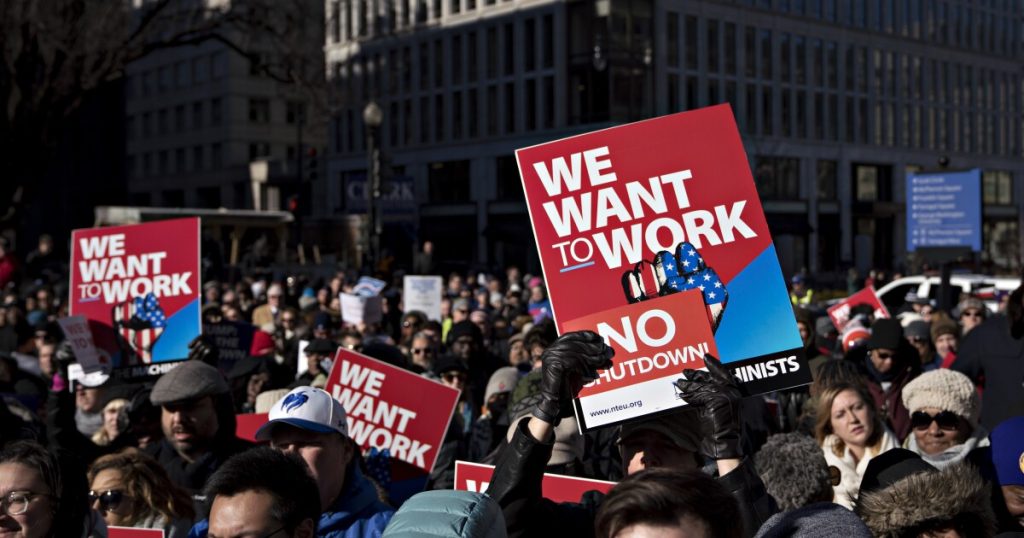- Key insight: Small and even some regional banks are starting to feel the pinch of the federal shutdown on Small Business Administration-guaranteed loans.
- Supporting data: New loan applications at the SBA have been halted starting Oct. 1, and loans already in the application process have been on hold.
- Forward look: Analysts hope that a speedy reopening of the government could offset the losses from the shutdown, but the longer the government stays closed the harder it will be for banks to recover lost fee income.
WASHINGTON — Markets have mostly shrugged off the government shutdown, but some small banks are starting to feel the pain as a bottleneck in at least one key program is grinding bank lending to a halt.
For most banks, shutdowns are
“I don’t think it’s been as disruptive as people thought it might be, and I don’t see that changing a whole lot,” said Brian Gardner, chief Washington policy strategist at Stifel.
But some categories of banks are more exposed to certain government programs that’ve been put on hold while lawmakers remain stalemated. Small and midsized banks in particular are being hurt by the pause in the processing of Small Business Administration loans, industry experts said.
“Hundreds of billions of dollars of SBA loans that were in the pipeline are just frozen,” said Cam Fine, a senior fellow at Better Markets and former CEO of the Independent Community Bankers of America. “So that’s that’s hanging both the bankers — predominantly community bankers — and small business men and women in the lurch.”
Fine said SBA loans are typically attractive ones for banks, particularly smaller banks, to make, in large part because the risk associated with the loan is guaranteed by the SBA.
“A small business comes in, the banker looks at the paperwork and it’s a loan that the banker is willing to make if the SBA will backstop the loan — in other words, if it will guarantee the loan,” Fine said. “So, if the small business goes belly up, then the SBA steps in and makes the bank good, so to speak.”
The bank collects fees on those loans, which are very low risk because of the SBA guarantee. With the government shutdown, banks lose out on those fees, and may be further endangered if a small business customer goes under and the SBA can’t backstop it.
“A lot of these small business owners, they don’t have mountains of capital where they can weather a long prolonged shutdown,” Fine said. “Their actual businesses could go under … because they’re having to use capital right now to try to keep the lights on until the line of credit goes through. So even if they opened up the government tomorrow, it would take some time to unclog the pipeline.”
Banks, from tiny institutions to large regionals, have mentioned upcoming pain points related to the shutdown and SBA lending in their conference calls.
“The SBA business has kind of shut down right now, so that’s some stress from that,” said M&T Bank Chief Financial Officer Daryl Bible.
Bible also referenced stress to government employees, nonprofits and contractors: “We’re monitoring all those areas. I haven’t really seen anything yet. But if it goes on [for] a few months, I think you’re starting to see some stress maybe.”
And on the smaller end, Northeast Bank — a $4.27 billion bank based in Maine — noted the conflict last week in an earnings call.
“The government shutdown essentially halted any new originations since October 1,” said Patrick Dignan, the bank’s chief operating officer. “We continue processing loans in the hopes of funding soon after the government is reopening. So we won’t be wasting any time with that. But obviously, it’s out of our control.”
This is a trend throughout small, SBA-heavy banks, said Mark Fitzgibbon, head of FSG Research at Piper Sandler, who covers Northeast Bank.
“It’s not insignificant for them and for other companies that traffic in this space,” he said. “Now the good news is, you would hope these loans will all … happen when the government reopens, and there’ll be sort of this flurry of activity, everybody will be trying to get through the door at the same time to close loan transactions.”
But depending on how long government shutdown talks extend, that could stretch into future earnings seasons.
“Until the government opens, SBA loan transactions are just not happening,” Fitzgibbon said. “The hope is that they’ll recapture that activity late in the fourth quarter, some of it late in the fourth quarter, the rest of it early in the first quarter, but it will weigh on bank earnings in the fourth quarter for sure.”
